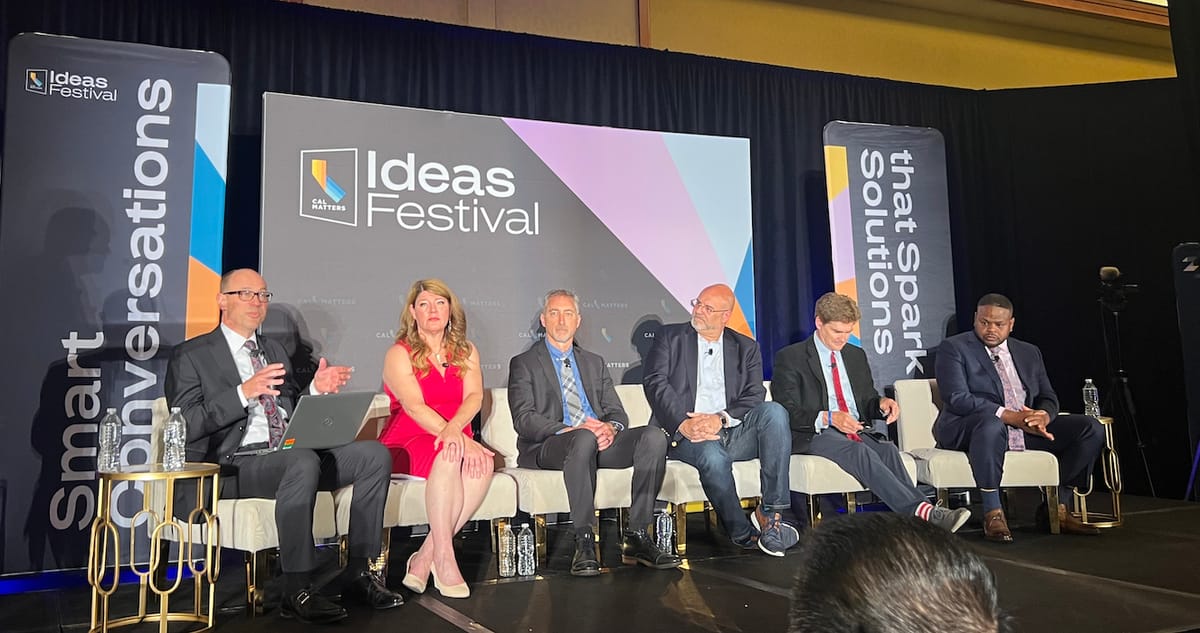
SACRAMENTO, June 6, 2024 – The head of a key committee in the California State Assembly is concerned delayed broadband grants could complicate future builds.
“Through the process of delays, and delays, and delays, we’re going to be ripping up the streets of California all at one time,” said Assemblymember Tasha Boerner, Chair of the Communications and Conveyance Committee. “The longer we do it, the more truncated that timeline is if we don’t want to give back federal dollars.”
Boerner’s panel has broad jurisdiction over broadband, cable, digital infrastructure, and video.
She was referring to the December 31, 2026 deadline for spending money allocated under the American Rescue Plan Act, which funds about a quarter of California’s $2-billion last-mile broadband grant program, called the Federal Funding Account. Applications for that funding closed in 2023, but no projects have yet been approved.
“We’re actually poised to begin awarding FFA,” said Rob Osborne, communications director for the California Public Utilities Commission, the state agency handling the program. “We’re working with the administration right now because of the budget situation, but we’re ready to start going.”
The officials spoke Wednesday at the California Broadband Summit, hosted by Broadband Breakfast and CalMatters.
Adding to the influx will be projects funded by the federal government’s $42.5billion Broadband Equity, Access and Deployment program and will be rolling out in the coming years. The CPUC, also managing California’s slice of BEAD funding, is expecting approval of its BEAD plan “within the next few months,” Osborne said.
That will give the state one year to award grants under the program and awardees another four years to finish projects.
“You’re going to have billions of dollars of projects released at the same time,” said Marc Blakeman, president of AT&T California and Pacific States. “There are not going to be enough qualified workers to build all of this in the short timeframe that you have. There’s going to be supply chain issues.”
California Broadband Summit
The event in Sacramento on Wednesday, June 5 is part of the CalMatters Ideas Festival on June 5-6, 2024.

Osborne did not say why the FFA awards are coming slower than expected.
The delayed awards for that program could also make the state’s middle-mile program, which funds infrastructure to connect local networks to the internet backbone, less effective, Boerner said.
“The middle-mile program is going forward at a much faster rate,” she said. “But we don’t know if we’re over, or under, or correctly building the middle-mile because we don’t know where all those last-mile connections will be.”
The middle-mile program is currently facing a funding shortfall, having determined its $3.8-billion budget won’t be enough to build the network it had originally planned, but is slated to lay more than 2,600 miles of fiber-optic cable by the end of the year.
To grapple with a budget deficit, California Gov. Gavin Newsom’s office proposed a revised budget last month that would rescind a $1.5 billion infusion he had promised in January to fully fund the middle-mile plans, as well as other money for municipal broadband.
Janus Norman, president of CalBroadband, a trade group representing cable companies, said the group’s members are frustrated at varying and sometimes contradictory strategies among state agencies and legislators.
“Right now, you have contradictory strategies sort of being discussed and/or deployed at the same time,” he said.
For example, the CPUC administers another broadband grant program that allows fixed wireless projects, while the FFA program is only funding fiber projects.
“From a fixed wireless person, you may not be used to hearing this. But use fiber wherever you can,” said Carl Guardino, vice president of government affairs and policy at Tarana Wireless. “Wherever it’s cost effective and even semi time efficient, use it. But the problem is we’ll run out of money and time before we run out of hundreds of thousands of un- and underserved Californians.”
Patrick Blacklock, CEO of the Rural County Representatives of California, said he’s confident in the state’s efforts. Blacklock’s nonprofit represents 40 rural counties and helped craft the state legislation that spurred both the middle- and last-mile programs.
“Has it taken a little longer than we might like? Sure. But at the end of the day, we have confidence that we can get there in terms of the original vision for reaching these hard-to-reach communities.”
The session was moderated by Broadband Breakfast CEO and Publisher Drew Clark.
